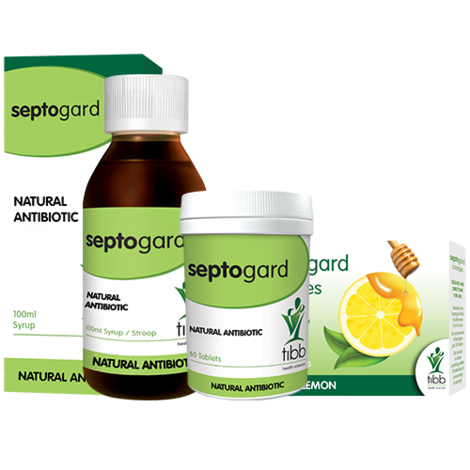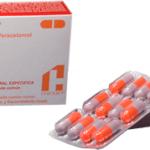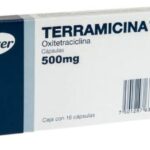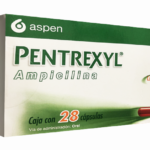Septogard: Uses, How it Works, Side Effects

What is Septogard?
Septogard Natural Antibiotic is a blend of medicinal herbs formulated to help bring bacterial and viral infections under control, as well as to boost the immune system. Septogard contains natural ingredients relied on for thousands of years to heal and restore.
Studies have shown that Herbs can be antibiotics. A small sampling study of 58 Chinese plants found that 23 had antibacterial properties and 15 had antifungal properties. A 2014 study found that an herbal therapy was just as effective as a chemical antibiotic in treating a small intestine bacterial overgrowth disorder. Septogard comes in syrup and tablets formulation.
What are the ingredients in Septogard?
Septogard tablets contain the following ingredients: Tinospora cordifolia, well known for its immunomodulatory response (stimulates the immune system), Emblica officinalis also known for boosting immunity. Rubia cordifolia – immunity booster and antimicrobial activity and Saussurea lappa, immunity booster.
Each per 5ml of Septogard syrup contain : Balsamodendron mukul – 80mg, Maharasnadi quath – 30mg, Rubia cordifolia – 15mg, Tinospora cordfolia – 20mg, Trikatu – 13mg, Emblica officinalis – 8mg, Glycyrrhiza glabra – 9mg, Asparagus racemosus – 10mg, Cinnamomum zeylanicum – 6mg and sugar.
What is Septogard used for?
Septogard is used to support and strengthen and help the immune system optimally all year round. It is used for Upper respiratory tract infections, lower respiratory tract infections, ear, nose and throat infections, urinary tract infections, sore throat, cough relief as well as resistance to antibiotic therapy, skin and soft tissue infections and inflammation and allergic disorders of the upper respiratory tract.
How should Septogard be taken?
Dosage of Septogard syrup
Infants: 2,5ml to 5ml two or three times a day, or as prescribed
- Children: 5ml to 10ml two to three times a day, or as prescribed
- Adults: Proportionally higher
Pack Size: 100ml
Dosage of Septogard tablet
Adults and Children over 12
1 to 2 tablets, 3 to 4 times daily or as directed by a practitioner
Dosage: Do not exceed the recommended dosage, efficacy of support may vary between users.
Can a pregnant woman use Septoguard?
No, Septoguard contains Rubia cordifolia, which should be avoided during pregnancy. The chemicals present in Rubia cordifolia may cause cancer. Consuming it can change the color of urine, perspiration, tears and breast milk.
What are the side effects of Septogard?
Septogard tablet and syrup can produce side effects. Do not use the product if known hypersensitivity or allergies exists towards any of the ingredients. Some common side effects that can occur in some people include;
- Headache
- nasal pain
- Dizziness
- Nausea.
NOTE: Ayurvedic formulations containing Emblica officinalis (Indian gooseberry) have been linked to liver damage. But it’s not clear if taking Indian gooseberry alone would have this effect.
Septogard Safety Information
The use of herbal medicines has seen a great upsurge globally. In developing countries, many patronize them largely due to cultural acceptability, availability and cost. In developed countries, they are used because they are natural and therefore assumed to be safer than allopathic medicines. In recent times, however, there has been a growing concern about their safety.
If you are taking any medication for a chronic condition, consult your medical practitioner before using Septogard tablet or syrup. If you notice any side effect while using Septogard tablet and syrup stop the medication immediately and call your doctor or pharmacist.





